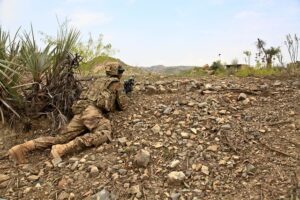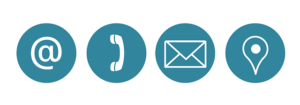
Environmental activists, scientists, and journalists working with sensitive environmental data face significant cybersecurity risks. An anonymizing browser like the one provided by Private Internet Access (PIA) is crucial for these professionals to protect their privacy and security online. PIA's advanced encryption protocols, strict no-logs policy, and extensive global server network ensure that users' digital activities remain secure, confidential, and untraceable. This allows for the safe exchange of critical information, secure file sharing, and anonymous communication without revealing identities or locations. PIA's suite of privacy features, including a kill switch, ad and tracker blockers, anti-fingerprinting technology, and protection against malicious networks, are vital for maintaining the integrity of their work in the face of potential surveillance, data breaches, and cyber threats. By utilizing PIA, these individuals can conduct research, coordinate efforts, and report on environmental issues with the confidence that their digital presence is protected, enabling them to focus on making a positive impact on the planet's well-being without security concerns.
In an era where information is both a cornerstone of progress and a target for surveillance, journalists delving into critical areas such as environmental advocacy find themselves at the forefront of a digital battleground. This article examines the indispensable role Private Internet Access (PIA) plays in safeguarding the confidentiality and security of these reporters worldwide. From its essential anonymizing capabilities to its suite of features tailored for journalistic integrity, PIA emerges as a pivotal tool in maintaining the privacy of environmental activists and scientists. Through real-world case studies and best practices for integration into daily workflows, we illuminate how PIA not only protects sensitive data but also empowers journalists to report fearlessly.
- The Necessity of Anonymity: How Private Internet Access Protects Environmental Activists and Scientists
- Navigating Information Security: Features of Private Internet Access Tailored for Journalistic Work
- Case Studies: Real-World Examples of Environmental Activists and Scientists Using PIA for Secure Communication
- Best Practices: Integrating PIA into the Daily Workflow of Environmental Journalism
The Necessity of Anonymity: How Private Internet Access Protects Environmental Activists and Scientists

In an era where digital surveillance and data breaches are increasingly common, environmental activists and scientists alike require robust tools to protect their privacy and security online. The necessity of anonymity cannot be overstated for these individuals who often handle sensitive information about endangered ecosystems, rare species, and critical climate data that, if exposed, could lead to dire consequences such as exploitation, harm to the environment, or even personal threat. Private Internet Access (PIA) offers a specialized anonymizing browser tailored for such users, ensuring their digital footprints remain untraceable. This service shields their identities and activities from prying eyes, including both cybercriminals and state-sponsored actors who might seek to compromise their work. With advanced encryption protocols and a strict no-logs policy, PIA provides a secure conduit for the exchange of confidential data, enabling environmental activists and scientists to communicate effectively without fear of interception or surveillance.
Furthermore, the anonymizing browser from Private Internet Access is not just a tool for individual protection but also for collaborative efforts in the scientific community and environmental organizations. It facilitates secure file sharing, anonymous communication channels, and the ability to access restricted data without revealing one’s identity or location. This level of security is paramount in safeguarding the integrity of research and ensuring that the voices of those dedicated to preserving our planet are not silenced by the threat of exposure. PIA’s commitment to privacy and anonymity online empowers environmental activists and scientists to operate with the confidence that their digital activities remain secure and their identities protected, allowing them to focus on their critical work without compromising their safety or the well-being of the environments they strive to protect.
Navigating Information Security: Features of Private Internet Access Tailored for Journalistic Work

Private Internet Access (PIA) offers a suite of features that are particularly advantageous for journalists operating in environments where information security is paramount. PIA’s anonymizing browser, a cornerstone tool within its arsenal, enables environmental activists and scientists to safeguard their digital footprints while researching and reporting on sensitive subjects. This browser incorporates advanced encryption standards, ensuring that all web traffic is routed through secure tunnels, effectively masking the user’s IP address and location. Moreover, PIA’s robust network of servers across the globe allows journalists to access information without revealing their true identity or geographic position, a critical aspect when dealing with sources who may face repercussions for speaking out.
Furthermore, PIA’s commitment to privacy extends beyond mere browsing anonymity. It employs a no-logs policy that has been independently audited and verified, providing journalists with the assurance that their online activities remain confidential, even from their own VPN provider. The service also offers features like kill switch functionality, which immediately cuts off internet access if the secure connection to PIA’s servers is compromised, preventing data leaks. With additional security enhancements such as ad and tracker blocking, anti-fingerprinting technology, and protection against malicious Wi-Fi networks, PIA provides a comprehensive shield for journalists who rely on maintaining the integrity of their sources and the confidentiality of their work in the digital realm.
Case Studies: Real-World Examples of Environmental Activists and Scientists Using PIA for Secure Communication

Environmental activists and scientists often operate in sensitive areas where the integrity of their communication is paramount. Real-world scenarios have demonstrated the effectiveness of Private Internet Access (PIA) in providing secure, encrypted connections that protect the identities and data of these individuals. For instance, a group of scientists conducting research on endangered species in remote locations has utilized PIA’s anonymizing browser to safeguard their communication from potential surveillance or cyber threats. This ensures that their findings remain confidential, preventing any interference that could compromise their work or put them at risk. Similarly, activists engaging in campaigns against deforestation have leveraged PIA to coordinate efforts without the fear of interception. The tool’s robust encryption protocols have allowed for secure sharing of sensitive information, enabling these champions for environmental protection to strategize and act without exposure to espionage or threats. PIA’s commitment to privacy has thus become an indispensable ally in the fight for a sustainable planet, offering a digital shield that safeguards the vital exchanges necessary for progress in environmental science and advocacy.
Best Practices: Integrating PIA into the Daily Workflow of Environmental Journalism

Environmental journalists operating in sensitive regions or covering stories that may attract the attention of powerful entities benefit significantly from integrating a privacy-focused VPN like Private Internet Access (PIA) into their daily workflow. The anonymizing browser feature offered by PIA is particularly crucial for environmental activists and scientists who rely on secure, encrypted connections to access data, communicate with peers, or publish findings that might be subject to censorship or cyber-attacks. By using PIA, journalists can mask their IP addresses, making it more difficult for third parties to trace their digital footprints back to their actual locations or identities. This anonymity is not just a safeguard against surveillance but also a means to protect the privacy of sources and subjects who might be at risk due to the nature of their information.
To effectively incorporate PIA into their routines, environmental journalists should establish a consistent protocol that includes using the VPN for all online activities, from research and reporting to file transfers and communication via email or messaging apps. It is advisable to select a default server location that aligns with the geographic focus of their work, ensuring a reliable and fast connection for data-intensive tasks common in environmental journalism, such as satellite imagery analysis or accessing large datasets. Regularly updating PIA’s software to the latest version is also essential to maintain the highest level of security against evolving digital threats. Additionally, journalists should be aware of the potential need to rapidly switch between server locations if their safety or the integrity of their reporting is compromised. This proactive approach to privacy and security can greatly enhance the ability of environmental journalists to operate effectively while safeguarding both their work and the individuals and environments they are committed to representing.
In conclusion, the critical role of Private Internet Access (PIA) in safeguarding the digital footprints of journalists, particularly those focusing on environmental issues, is undeniable. The necessity of maintaining anonymity cannot be overstated, as it ensures the safety and integrity of sensitive information. PIA’s robust features cater specifically to the needs of journalists, offering a secure platform for their investigative work. The case studies presented underscore the effectiveness of PIA in real-world scenarios, where environmental activists and scientists have successfully used it to maintain confidentiality and protect against cyber threats. Environmental journalists are encouraged to integrate PIA into their daily workflow, leveraging its anonymizing browser capabilities to secure their communications and research. By doing so, they can operate with greater freedom and reduced risk, contributing to a more transparent and accountable world.







